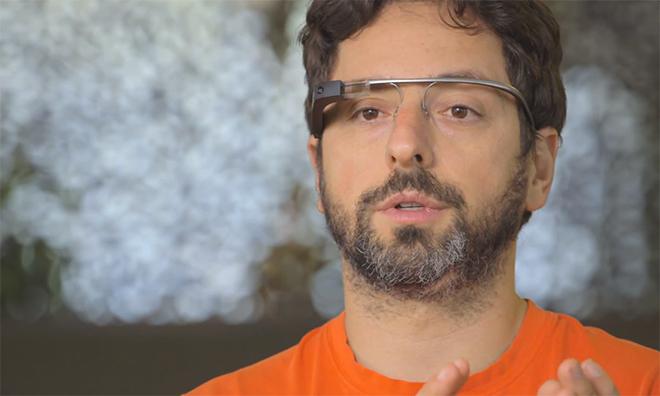A project funded by Google cofounder Sergey Brin has yielded the world's first "synthetic" beef hamburger, the first step in what the billionaire hopes is a transformation in sustainable foods.
It was announced on Monday that Brin funded the project looking into lab-grown beef, dubbed "Cultured Beef," which has the potential to change the way humans farm and consume meat, reports The Guardian.
While still a proof-of-concept, and nowhere near ready for sale at the local supermarket, studies by the University of Oxford suggest cultured beef could use as much as 99 percent less space than current livestock farming, while cutting down on greenhouse gas emissions.
Along with environmental benefits, cultured beef can help with a rising beef demand that is forecast to outstrip production within 40 years. With synthetic beef, livestock can be farmed less intensively, thus tapering a reliance on antibiotics which are stored in fat cells and can lead to cancer in humans.
"There are basically three things that can happen going forward," Brin said in a video . "One is we'll all become vegetarian. I don't think that's really likely. The second is we ignore the issues and that leads to continued environmental harm. And the third option is we do something new."
Led by physiologist Dr. Mark Post, the research team at Maastricht University took a small sample of cow stem cells and grew 20,000 strands of muscle fiber over the course of three months. These strands were combined to make one hamburger patty. According to Post, the few sample cells can theoretically turn into ten tons of meat.
Dr. Mark Post holds a sample of cultured beef. | Source: CulturedBeef.netThe first cultured beef patty was cooked up and served to Taste of Tomorrow author Josh Schonwald and Austrian food trends researcher Hanni Rützler from the Future Food Studio. The synthetic beef, which was colored with beet juice and saffron, reportedly had the texture of real beef, but lacked flavor. This is to be expected, as cultured beef lacks fat cells.
For more information, the researchers have set up a website filled with facts and figures on meat sustainability, as well as video on how cultured beef is made.
 AppleInsider Staff
AppleInsider Staff







-m.jpg)






 Marko Zivkovic
Marko Zivkovic
 Wesley Hilliard
Wesley Hilliard
 Christine McKee
Christine McKee
 Malcolm Owen
Malcolm Owen

 William Gallagher
William Gallagher






-m.jpg)



130 Comments
Not sure, but a lot of people I know eat substantially *less* beef now than we did when we were younger, and that's including the rise in incomes. The only truly sustainable way forward is reduction, which is clearly what no one really wants to do. They choose to instead turn to commercialized science to provide solutions to problems. But at the end of the day, it seems increasingly more frequent that the solutions are often becoming more and more problematic. Still, even without that, I'm not sure I'd want to eat that. Sort of could be Son of Pink Slime. Just thinking this over a bit more you have to ask the question why would you want to eat fake food? We already have a wide variety of pseudo-food products that make up most of our supermarket selections so I suppose I shouldn't be surprised. Why stop at soy filler and high fructose corn syrup? I can't resist. Must. Make. Samsung. Joke. "Samsung's response would be to assemble wet shredded newsprint, mix in some FD&C Red #5, put it on sale for the same price then demand 2.25% of each pound sold from other producers because they own a patent. If they don't get it, they run to the ITC."
The idea of eating the synthetic muscle (can one really call it beef?) creeps me out. Almost as much as the fact that he can't be bothered to take off the Google Glasses to talk about it. I'm surprised that he's not seeing if the muscle can be cultured in the Google Glass itself and trickled into his body. If this is the future of humanity ...
Why is this even being covered by AI? This is insane. If the FDA even thinks about it, the lawsuit lawyers will be waiting in the wings for the first person to get sick. The better way to reduce greenhouse gases caused by cow emissions (f*rts) is to reduce the number of cows and to get people to eat less animal based protein, something the human body doesn't need in such quantity (or at all). When I was growing up, we didn't eat 5lb hamburgers or 30 oz steaks multiple times a week. We were a lot healthier than the fat people today who cram so much unnecessary meat into their bodies it's no wonder they get sick with cancer and diabetes. Eat healthier, don't attempt to grow animal protein for human consumption.
[quote name="patrickwalker" url="/t/158898/googles-brin-funds-332k-lab-grown-beef-hamburger-looks-to-make-meat-a-sustainable-resource#post_2374501"] Just thinking this over a bit more you have to ask the question why would you want to eat fake food? We already have a wide variety of pseudo-food products that make up most of our supermarket selections so I suppose I shouldn't be surprised. Why stop at soy filler and high fructose corn syrup?[/quote] Agree. It is sad but today in our day and age one must look hard for actual food. Like you said, go to any supermarket and just look. The vast majority of the products being sold are truly what one would call "food-like products." Everything is highly refined and processed --and in many cases altered (with additives, preservatives, hormones, etc). And everyone knows that the more processed the food is the more calories and the less nutrients the "food" has. No wonder we have a society where nearly 70% of the population is overweight (and a lot of them are obese). It is sad but the vast majority of people make their food choices based on taste and not on nutritional value. I highly recommend anyone to watch on Netflix: "Food Matters," "Hungry for Change," "Forks Over Knives," and "Fat, Sick, and Nearly Dead." These are great eye openers.
I wonder if the protein is extracted from excrement. Google has a lot of excrement for which they need a solution. This may be a perfect solution for Google.